School students Anna Helene Nerlich and Sophie Isabell Fallis from the Bertha-von-Suttner-Gymnasium in Potsdam-Babelsberg carried out their highly successful ‘Jugend forscht’ project ‘Heiliges See-diment – DNA-Untersuchung’ (‘Heiliger See’ lake sediment – DNA analysis) at the GeoBioLab of the GFZ Helmholtz Centre for Geosciences. They investigated the relationship between bacterial DNA and environmental conditions for the case study of the ‘Heiliger See’ lake in Potsdam over the past 300 years using a sediment core. At GFZ, they were supported by Prof. Achim Brauer, head of the former Climate Dynamics and Landscape Development Section, and Prof. Susanne Liebner, working group leader in the Geomicrobiology Section. The students were able to show that the composition of bacterial communities in the Heiliger See is strongly influenced by climatic changes, human influences such as sewage and construction projects, and hydrological interventions.
After winning first place at the regional level and second place at the state level in the ‘Jugend forscht’ (Youth researches) competition in the field of biology, they have now been awarded second prize by the Dr. Hans Riegel Foundation in the field of biology. It is awarded in cooperation with fifteen German and six Austrian universities for outstanding STEM projects (science, technology, engineering, and mathematics) by secondary school students.
Bacterial DNA helps reconstruct past environmental conditions
The aim of the project was to use environmental DNA from a sediment core from the ‘Heiliger See’ Lake in Potsdam to investigate how bacterial communities have changed over the last ~300 years and what conclusions can be drawn from this about environmental and climatic conditions in these past centuries. Since certain types of bacteria only occur under specific conditions, their frequency and composition were to serve as indicators of historical developments in the lake.
The analyses were carried out at the GeoBioLab at the GFZ. After measuring the concentration of the samples, they were examined in a sequencing library. Cyanobacteria in particular proved to be reliable environmental indicators.
The results of the work indicate, for example, that there was an increase in nutrient inputs via the city canal in the 1870s, accompanied by inadequate sewage disposal and possibly also construction activities, e.g. the church on Bassinplatz. The highest microbial diversity was measured in 1944. That year, Potsdam experienced one of the warmest summers of the century. Between the 1960s and 1980s, there was an increase in cyanobacteria. During the same period, the lake became a more or less closed system when the Hasengraben was closed. This contributed to the accumulation of nutrients in the lake, improving conditions for cyanobacterial growth. From around 2000 onwards, there was an increase in potentially toxic cyanobacteria such as Microcystaceae, presumably due to global warming and eutrophication.
The awarded work demonstrates that environmental DNA can be a valuable method for reconstructing historical environmental conditions – with relevance also for future developments such as the increase in potentially toxic bacteria as a result of global warming.
Background to the project
Work on the project ran from autumn 2023 to spring 2025, with laboratory work at the GeoBioLab taking place mainly between January 2024 and January 2025.
The cooperation between the Bertha-von-Suttner-Gymnasium and the GFZ was established between the supervising teacher Dr. Jochen Woller and Prof. Dr. Achim Brauer, then head of the former Climate Dynamics and Landscape Development Section, now retired and guest in the Geomorphology Section.
The work in the GeoBioLab laboratory was carried out under the supervision of Prof. Dr Susanne Liebner, working group leader in Section 3.3 Geomicrobiology. Further support was provided by Anke Saborowski, technical staff member in the section, Dr Alexander Bartholomäus, head of bioinformatics in the section, and Amy Senf, student assistant in the section.
Awards for the project
Jugend forscht
1st prize in the biology category of the Brandenburg East regional competition in Wildau at EWE on 28 February 2025
2nd prize in the biology category at the Brandenburg state competition in Schwarzheide at BASF on 1 April 2025
Award ceremony on 12 June 2025 at the Potsdam City and State Library, organised by the University of Potsdam.
The Dr Hans Riegel Prizes are awarded by 15 German and Austrian universities in cooperation with the Dr Hans Riegel Foundation and the Kaiserschild Foundation. They recognize particularly good final projects by school students shortly before their Abitur or Matura (final school) exams. Academic achievements at university level are selected by a jury of experts and honoured with cash prizes.
The aim of the competition is to promote young talent in the fields of mathematics and natural sciences and to establish early contact with universities and relevant funding opportunities. It also supports exchange between schools and universities, thereby improving the promotion of young talent.
The prize was established by Dr Hans Riegel, founder of the Haribo group of companies.
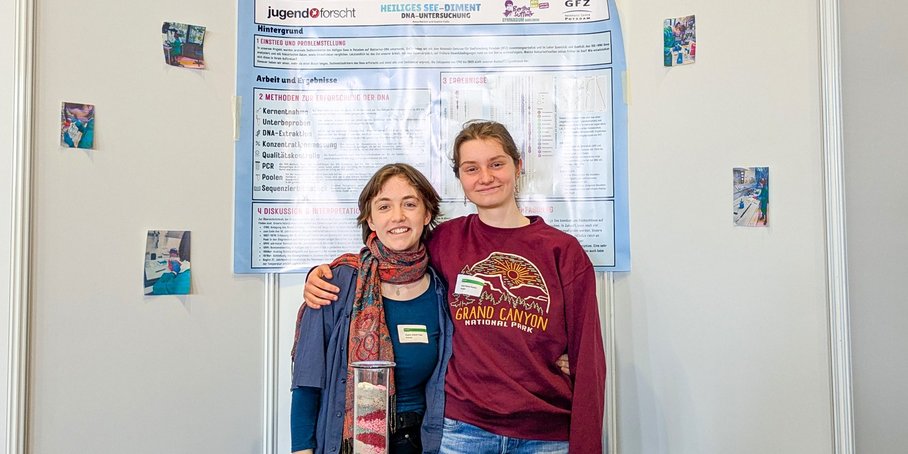
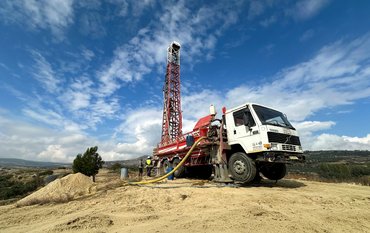
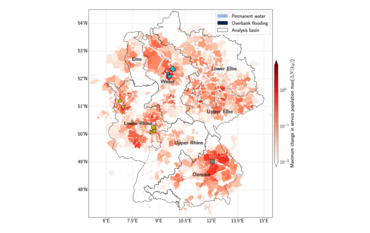
![[Translate to English:] Profile of Prof. Dr. Liane G. Benning, with short blonde hair, red shirt and content face expression.](/fileadmin/_processed_/2/c/csm_Benning-Liane-G_-c-Phil-Dera_546b6a187c.jpeg)
![[Translate to English:] [Translate to English:] Dronenfoto des Vulkans.](/fileadmin/_processed_/c/d/csm_20260210-web_Drone-view-of-Vulcano-Island-near-Sicily-Lipari_-c-AdobeStock_606279354_Marcin0_186f3e7bff.jpeg)
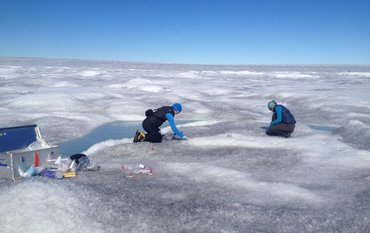
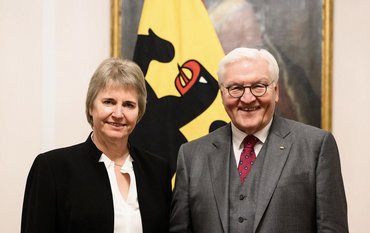

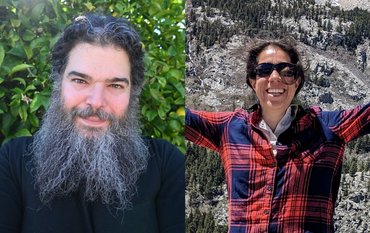
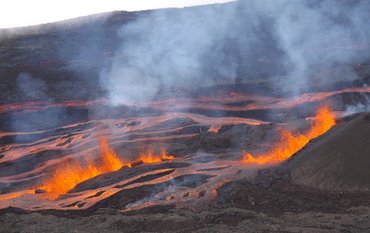
![[Translate to English:] [Translate to English:] Metallbrücke, die zum Teil gebrochen ist und durch die ungewöhnlich viel schlammiges Wasser fließt](/fileadmin/_processed_/9/6/csm_2026_01_22_Bridge_broken_due_to_flash_flooding_in_North_Sumatra_25_Nov_2025_cbe62be46b.jpeg)
![[Translate to English:] Tim Schöne in front of his scientific poster](/fileadmin/_processed_/5/b/csm_Tim_Schoene_EGU_Wien_2025_3cb7b450f2.jpeg)
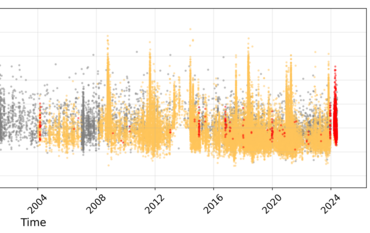
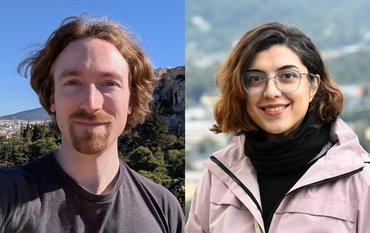
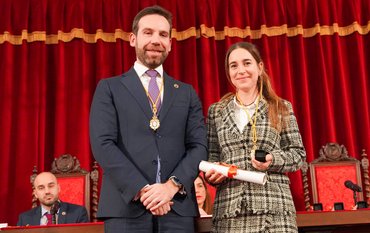
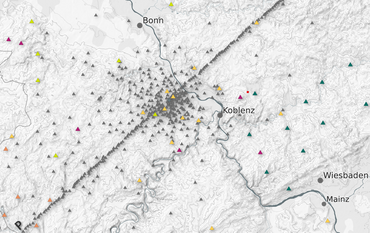
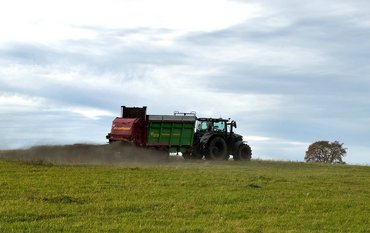
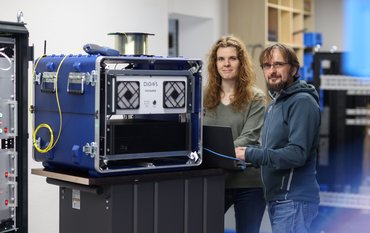
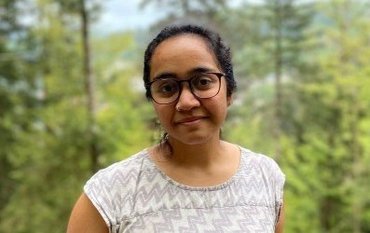
![[Translate to English:] Susanne Hemmleb (right) and her GEOFON colleague Peter Evans (both Section 2.4) hold the CoreTrus](/fileadmin/_processed_/0/a/csm_cert0677_CoreTrustSeal_Geofon-02_93ac53757f.jpeg)
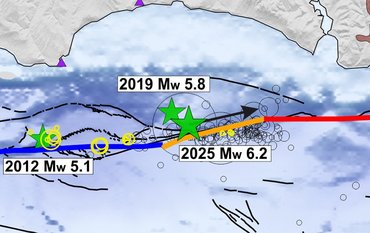
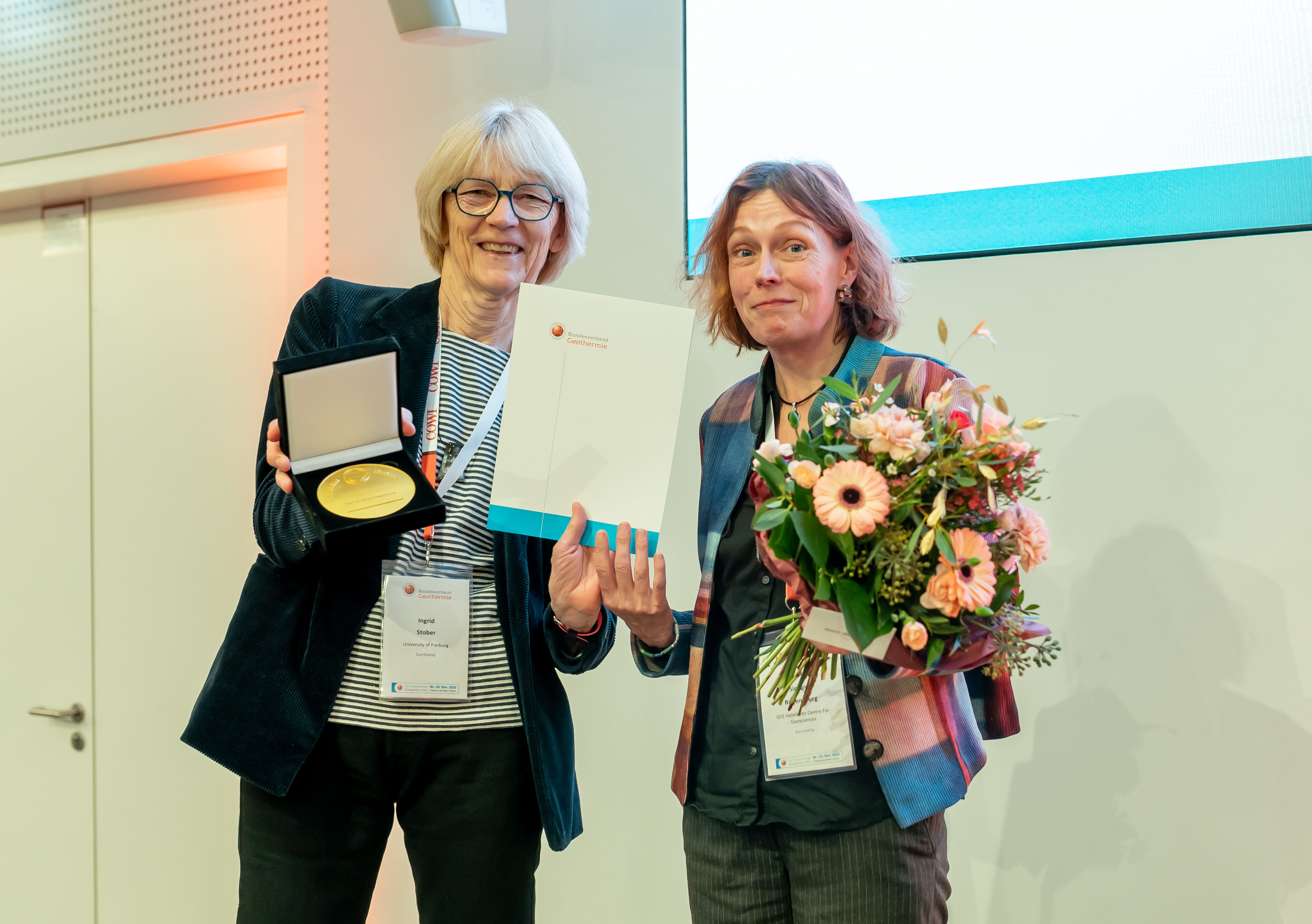
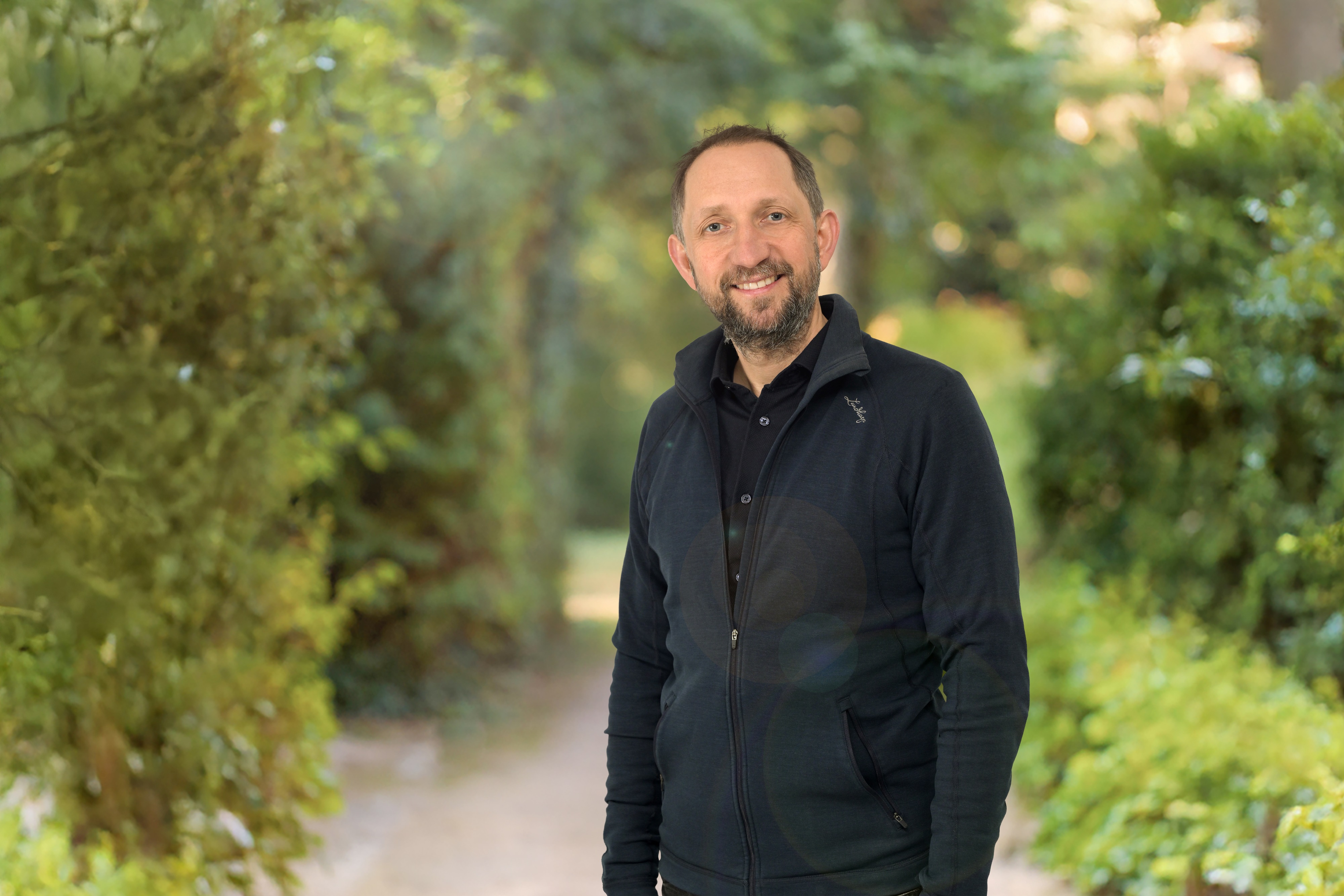
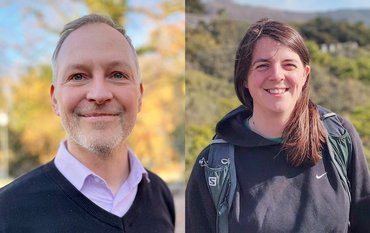
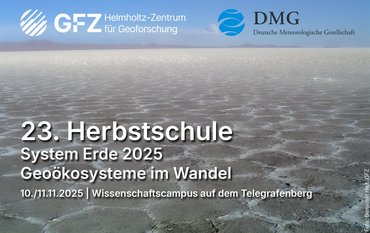
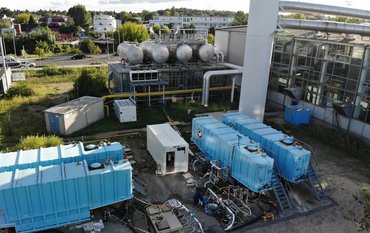
![[Translate to English:] Group photo with 8 people in a seminar room in front of a screen.](/fileadmin/_processed_/2/1/csm_20251114_News_EU-Water-Resilience-Exchange_Kreibich_c-xx_db4e5be690.jpeg)
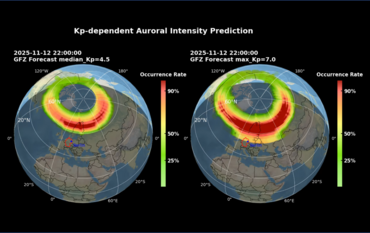
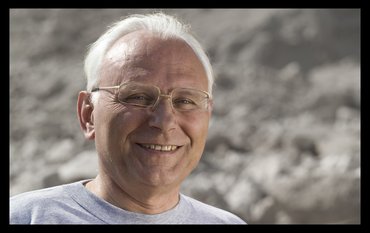
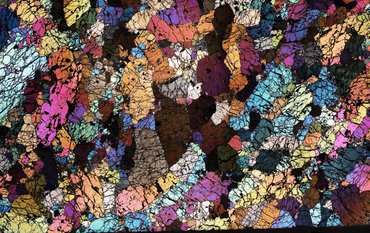
![[Translate to English:] Portrait photo, blurry background](/fileadmin/_processed_/a/2/csm_2025_11_06_JEAN_BRAUN_HE_Helmholtz_Portraits-23_2b5c35beee.jpeg)